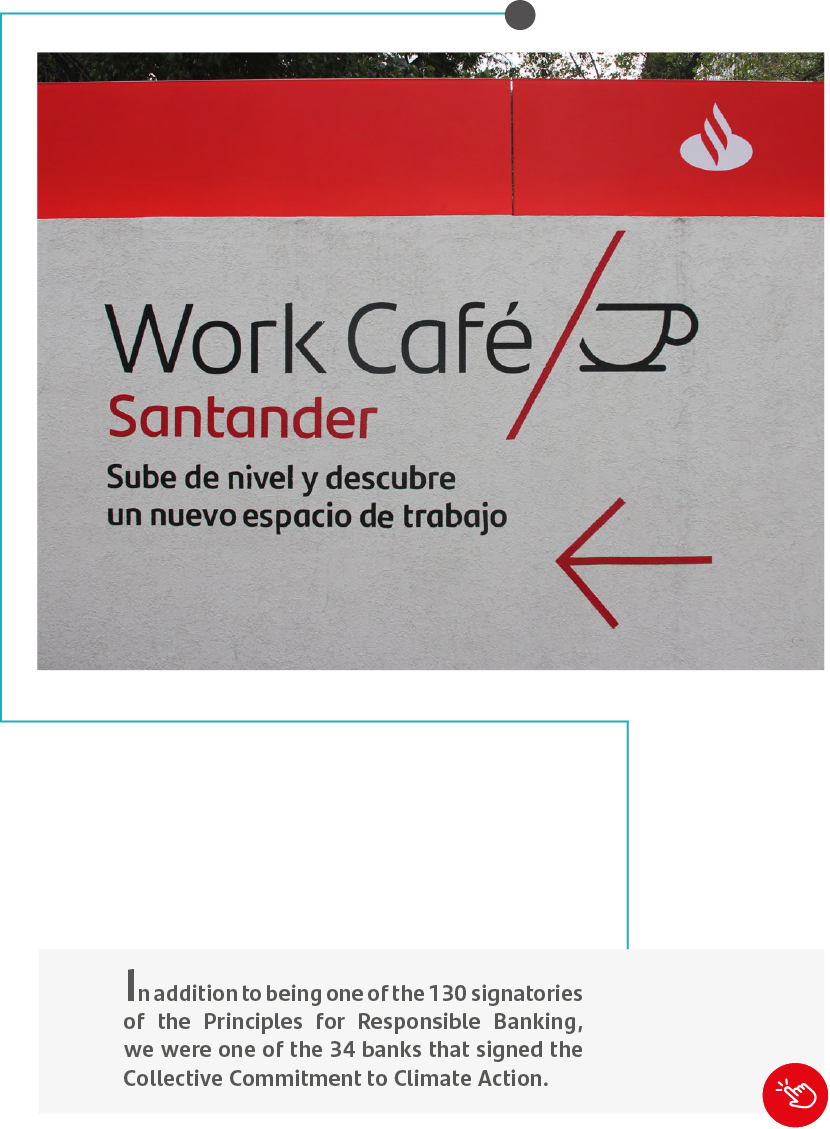Banco Santander was one of the founding members contributing
to their elaboration in alliance with the United Nations Environment
Program Finance Initiative (UNEP FI).
Banco Santander
is a founding member and signatory of the Principles for Responsible Banking.
The Principles for Responsible Banking are the first global
framework to help incorporate sustainability into all areas
of banking. By adhering to these Principles, banks commit to
publicly assuming the social, environmental and economic
impact of their operations.
This initiative stems from the financial sector’s role as a key
driving force in society, which is why it is necessary to formalize
the banking sector’s commitment to helping tackle global
challenges in order to continue helping the world to move
toward greener economies, more responsible patterns of
consumption and greater social balance.
Principle 1: Alignment
We will align our business strategy to be
consistent with and contribute to individuals’
needs and society’s goals, as expressed in the
Sustainable Development Goals, the Paris
Climate Agreement and relevant national and
regional frameworks.
Principle 2: impact and Target Setting
We will continuously increase our positive
impacts while reducing the negative impacts
on, and managing the risks to, people and
environment resulting from our activities,
products and services. To this end, we will set
and publish targets where we can have the
most significant impacts.
Principle 3: Clients And Customers
We will work responsibly with our clients
and our customers to encourage sustainable
practices and enable economic activities that
create shared prosperity for current and future
generations.
Principle 4: Stakeholders
We will proactively and responsibly consult,
engage and partner with relevant stakeholders to
achieve society’s goals.
Principle 5: Governance and Culture
We will implement our commitment
to these Principles through effective
governance and a culture of responsible
banking.
Principle 6: Transparency and Accountability
We will periodically review our individual and
collective implementation of these Principles
and be transparent about and accountable
for our positive and negative impacts and our
contribution to society’s goals.

